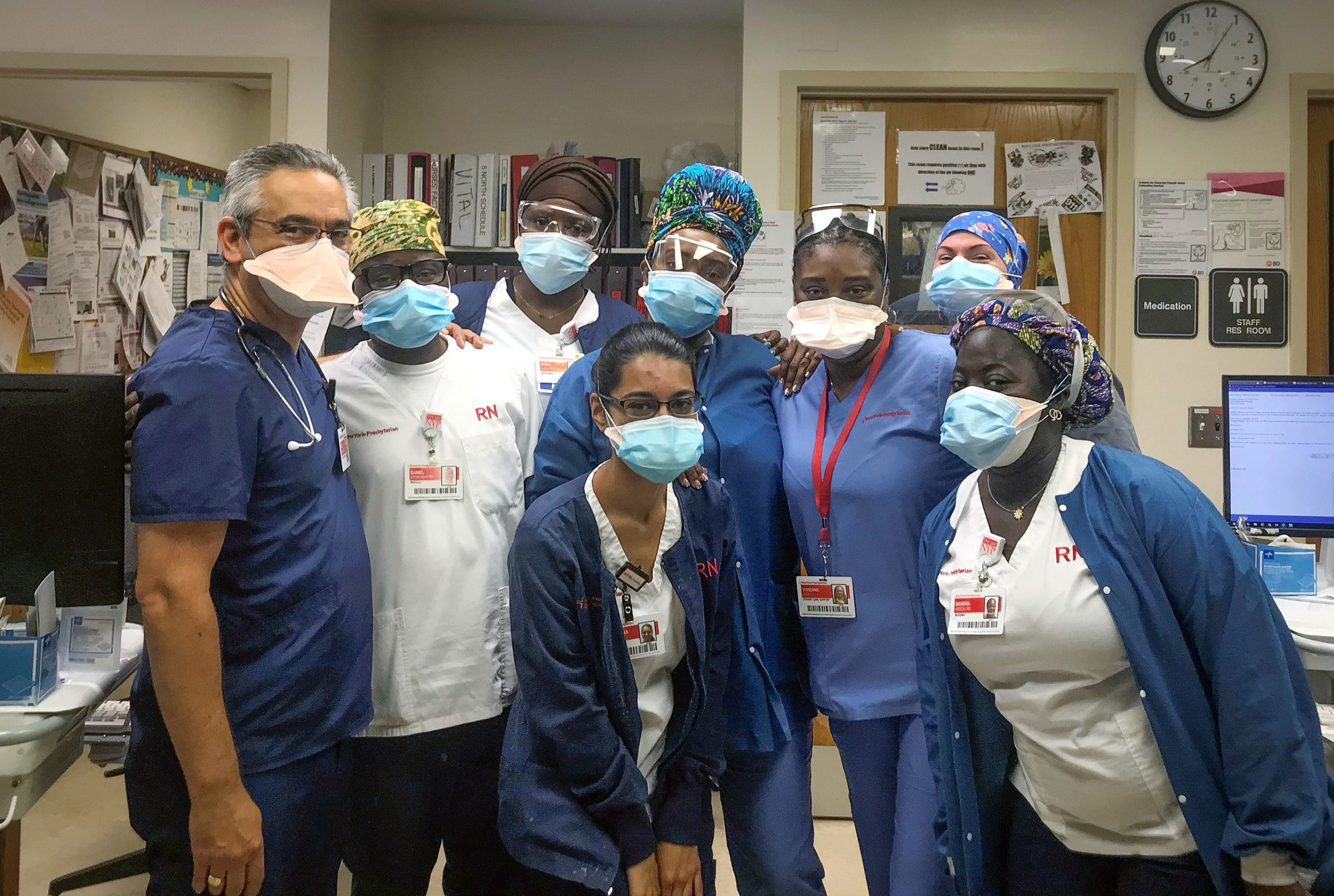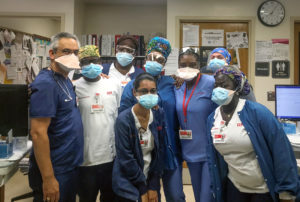



By Leslie Farrell
What’s in a number? It turns out that in the Northeastern United States, the number 999 has been transformative for Baha’i communities.
On April 14, 2020 shortly before a nationwide call went out for every Baha’i household to hold a regular devotional gathering, the Regional Baha’i Council of the Northeastern States set a goal of holding 999 new devotionals by the Day of the Covenant, a Baha’i holy day in November. When that day came and went, they extended the goal to Ridvan 2021, a holy day in April, making it a year-long endeavor.
The Baha’i communities in the nine-state region ended up surpassing their goal, and gained much more than that notable accomplishment. The experience “has contributed to a strengthened and meaningful devotional life of the region, even affecting its culture,” says Marie McNair, Regional Baha’i Council secretary from Brooklyn, New York.
“We really wanted to enhance the devotional spirit in the region, McNair says. She adds that they thought increased prayer would have a lasting effect. “What we found was a real shift in how people were using prayer. It became the center; it affected our Feasts [gatherings held each Baha’i month], our Holy Days, family lives and relationships.”
According to McNair, a purity of spirit seemed to permeate the entire process, resulting in deep sincerity and creativity. “It became an idea of finding ways to really uplift the devotional spirit of everything we did in the region. We found as a result that we could see a shift in how the friends were immersing themselves in prayer,” she says.
Before they embarked on this endeavor, most of the Baha’is thought of devotionals in the traditional sense of inviting people to come together to pray, snack and chat. “That’s a wonderful kind of devotional gathering and we don’t want to lose that. But we realized there are other spaces that can also be filled with the devotional spirit,” McNair explains.
With the target of 999 to motivate them, they touched the hearts of those near and far. People found new ways to hold devotionals wherever they happened to be, whether at work or at home or when chatting with friends, with one person or a dozen people.
They prayed together while on nature walks, in cooking classes, women’s groups and knitting groups. They held devotionals at dawn and devotions “for dudes.” Often the topic was race equity, which spawned many meaningful conversations.

Saeid Mirafzali, a doctor at New York Presbyterian Lawrence Hospital in Bronxville, New York, noticed a few nurses praying together while at work. “I’d passed by the medical unit and I noticed the nurses were saying prayers in the morning, so I asked if I could say a prayer as well. I said ‘Refresh and Gladden My Spirit’ and they loved it. A few weeks later I approached them and asked if we could do it regularly,” Mirafzali explains. Every time that Mirafzali is at work, he prays with the group of nurses that numbers between 10-20.
The praying began when COVID 19 cases were high, and they were using prayer to help them get through the tough days. As a consequence, the bonds between this group of people have strengthened. “It makes the environment feel a little better. Blessed is the spot,” he says, referring to a phrase from a Baha’i prayer that affirms the sacredness of any place where there is mention of God.
Prayers can strengthen the bonds in families as well. Stephanie Jaczko Robinson, Frank Robinson and their daughters Clovy (12) and Cassia (9) of Eliot, Maine, have used this time to make the nightly devotionals they were already having as a family to be more meaningful.
Says Jaczko Robinson, “This has changed the way we show up to these family gatherings. We sing more, and we sometimes begin by asking is there anyone or anything you’d like to pray for? This all makes it more intentional.” She adds that Clovy told her that praying together helped reduce anxiety surrounding the pandemic. “They felt like we can pray for protection.”
The family began having 15-minute Monday evening Zoom devotionals with other families, with the children hosting and guiding the gatherings. Each week a different child hosts by welcoming everyone, saying a prayer or singing a quote, and inviting the others to do the same by “passing the prayer”, by calling on the next person. These devotionals have connected people in a new way that they all seem to cherish.
“Young children are not usually a fan of Zoom, but when they get to run the show, that’s very different,” Jaczko Robinson says with a laugh. Children as young as 3 have hosted.
Clovy and her friend Samaya Sabera also have been holding well-received virtual themed devotionals with guest speakers and activities. “Devotional spaces give children the opportunity to take the lead,” Jaczko Robinson says.
Another group in Maine created a biweekly devotional last winter, calling themselves the Soul Fire Mamas. Because of the pandemic, the mothers could only meet outside, which can be uncomfortable during the Northeastern cold months. But they bundled up and gathered around fire pits for prayers, songs and conversations. “This really connected this group of moms together in a way they didn’t anticipate,” Jaczko Robinson says.
In Rochester, New York, Debbie and Bob Rosenfeld and friends were concerned about the devastating effects from the coronavirus, and decided they had to do something. So they chose to say the Baha’i Long Healing Prayer every day at 9:00 a.m., on Zoom.
“It’s not a prayer I’d say on my own every day, I’ll tell you the truth. But this has really gotten me into that prayer. And most of us have agreed. It’s a beautiful prayer,” Bob Rosenfeld says.
The effort continues to this day. “I’m not ready to stop. There’s still a lot of healing that needs to go on. We have also focused on healing racial problems and war – it’s not just COVID,” Debbie Rosenfeld says, adding that they’ve also studied the meanings of the words within the prayer.
This devotional has attracted people from several states and even inspired one Baha’i to move to Rochester from Baltimore, in large part because she so enjoys their community.
For those who can’t join to say the Long Healing Prayer in the morning, another group has started a devotional to say it in the evening once a week.
Tim Griffin of Auburn, Maine, wanted to pray with as many people as possible, and was inspired to use his telephone as the mechanism through which to reach them. He called 23 people for one-on-one phone-call devotionals, spending five to 10 minutes with each, and they thanked him. “I felt like it was very successful for me. Some Baha’is were isolated and this was an excuse to call and talk to them,” Griffin says.
Even in settings where prayers were already being said, people began to feel a deeper sense of spirituality. McNair says one Local Spiritual Assembly, the nine-member governing council for a local Baha’i community, began offering “more intense prayer” at its meetings, helping them take on the character of devotional gatherings, and adding to the community’s goal.
One Baha’i told McNair that at their meetings before this effort, they would say an opening prayer but beyond that, they didn’t pray together. “It was something we just didn’t do. Now we wouldn’t think about not having prayers together. It’s become part of our culture,” says McNair.
Although they found that having a numerical goal inspired the community to hold extra devotionals, it was never really about the number. “It was about the idea that everyone could participate. It also opened so many opportunities to share prayers and expand our ability to share the word of God,” McNair says.


![]()
![]()
Whether you are exploring the Bahá'í Faith or looking to become an active member, there are various ways you can connect with our community.
Please ensure that all the Required Fields* are completed before submitting.